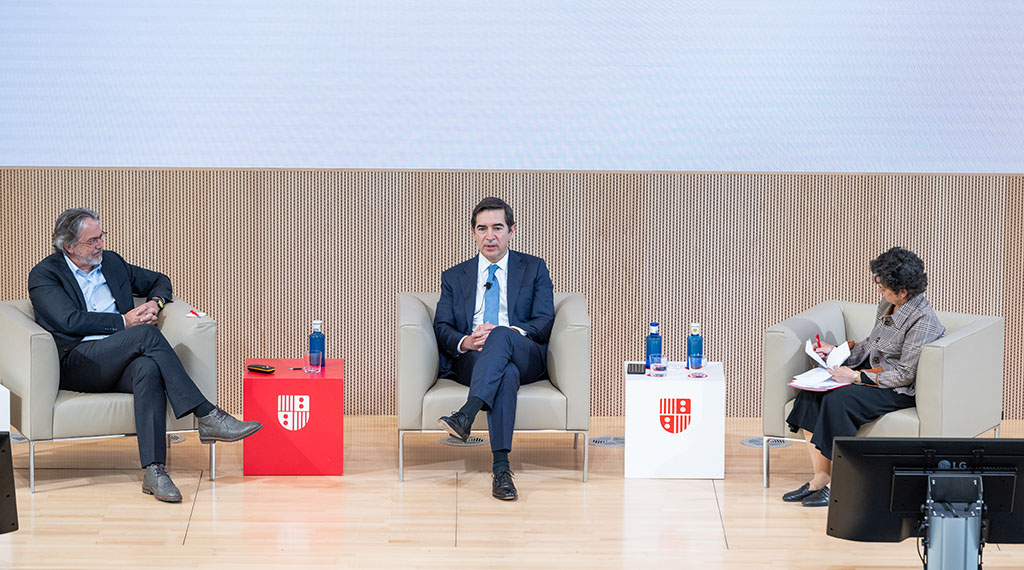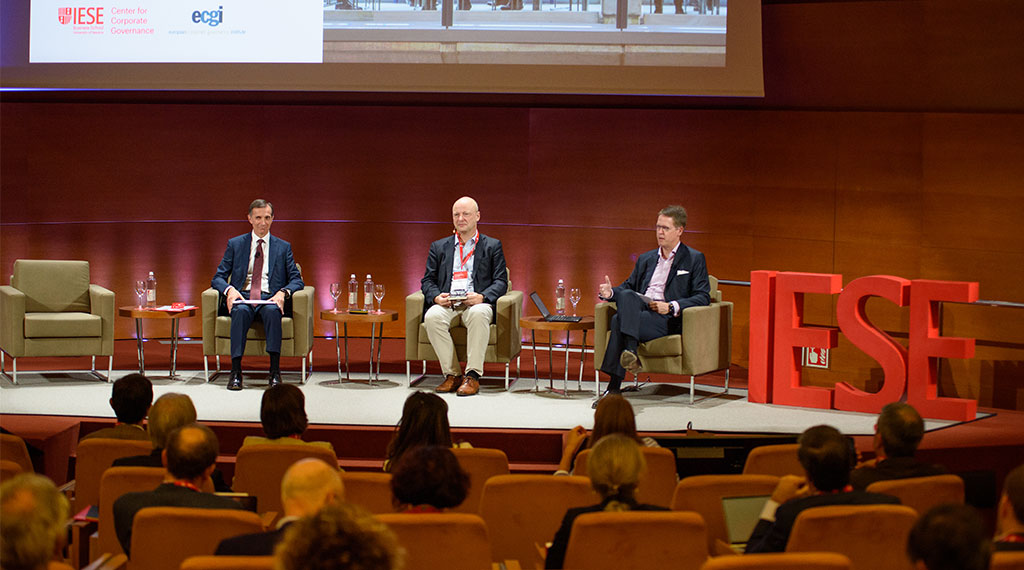Stories
Taking the long view in volatile times
In a fast-changing world, effective corporate governance has never been more necessary. The way company boards are adapting to new challenges came under the spotlight at a conference held by IESE in Madrid
2024 IESE-ECGI Corporate Governance Conference: Towards a new model of board of directors
April 17, 2024

AI is shaking up the way firms do business, while geopolitical and climate risks are piling new pressures on board members charged with ensuring that companies run profitably and well.
Scholars, investors, and figures from the corporate world gathered at IESE Business School’s Madrid campus on April 15 to assess the tasks weighing on companies also faced with growing regulatory demands and the potential scrutiny of activist investors.
A board’s interactions with shareholders, its role in crafting strategy, succession planning and how to grapple with disruptions caused by global warming and the emergence of AI were among the topics under discussion in the event, the fifth of its kind organized jointly with the European Corporate Governance Institute.
“We want to engage and develop a dialogue,” said Prof. Jordi Canals, who leads IESE’s Center for Corporate Governance.
Carlos Torres, chairman of BBVA since 2018, spoke of the challenge of taking a long-term view as its board members monitor the challenges and risks confronting the Spanish banking giant, as well as emerging areas of opportunity. Part of the skill lies in providing support and guidance to executives while letting them get on with the day-to-day tasks of management, he said.
Here are some insights from Torres on the role of being BBVA’s chairman:
- It’s essential for the board to discuss and inform areas of strategy “especially in a time of profound change.”
- An effective board must be willing to think big, break the mold and “bite the bullet” to take difficult decisions when needed.
- Moving to the chairmanship after an earlier stint as BBVA’s CEO required “a lot of restraint.”
- “What the board should avoid is getting too deep into matters that are the executives’ responsibility,” said Torres.
In a session looking at the role of boards in hiring, and, when necessary, firing CEOs, Prof. Mireia Giné, the head of IESE’s financial management department, spoke of the considerations that boards must take into account as they sift through candidates to become senior executive.
- Making the right “match” is one of the important decisions board members can take as they assess the skills of leaders and managers, according to Giné.
- Strong general abilities and interpersonal skills tend to count strongly in the hiring process, she said. Firms, meanwhile, will often pay more to hire a CEO candidate who shows a willingness to invest in new technology.
- Companies must do more to ensure that more talented women can scale the executive ladder into positions where they can be considered future CEOs, according to Giné.
- “HR can improve their processes and make them more open,” she said.
A final panel session, moderated by Prof. Canals, tapped the experience of chairmen and women of major companies including Amadeus and Cellnex who provided insights into how the role of board members will evolve.
- The part played of new technologies will be key, according to Anne Bouverot, the chairperson of Cellnex, who called on boards to “try and play with AI”.
- Risto Siilasmaa, a former chair of Nokia, said he could envisage a time when AI could provide a “final comment” in board discussions as well as help in speeding up processes.
- William Connelly, the chair of Amadeus, noted that the rapid pace of change in corporate life would mean more demands on independent board members, and perhaps greater rotation as a result.
- “There’s an expectation that people will need to engage and that requires commitment and change,” he said.


